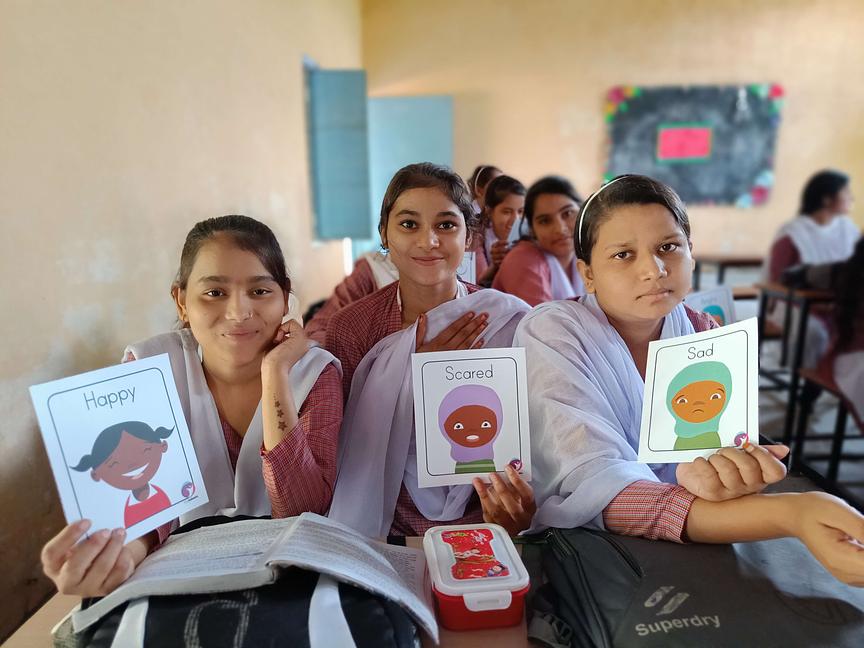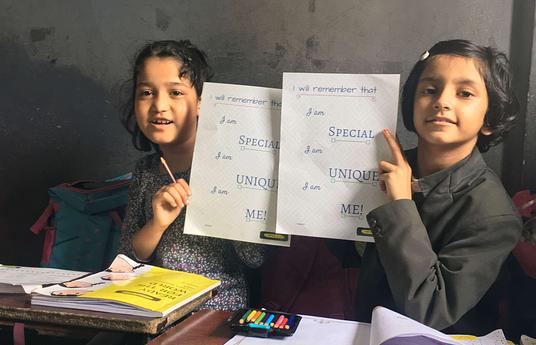India has 53m underprivileged girls (12-18y) living in a 3000y old oppressive patriarchy. Most are first-generation learners from the lowest castes, religious minorities, low socioeconomic backgrounds, rural and tribal areas. COVID-19 has further led to learning loss, 20m school dropouts, and 13m child marriages. We empower adolescent girls with critical thinking and problem-solving skills, build their confidence and sense of agency, and teach them to interact effectively with others, creating transformative impact through our Foundational English and Critical Skills for Adolescent Girls programs.
SwaTaleem works with girls, teachers, wardens, local women, girls' parents, and government officials through a village approach. We work with a nationwide network of schools with a focus on critical skills and English language, and we take a lifespan approach towards girl empowerment by creating pipelines and an ecosystem of long-term support. As part of our hybrid model, we build the capacities of teachers, wardens, and local community women to work with girls by creating school clusters. This is coupled with cost-effective IVRS (Interactive Voice Response System) technology to engage with parents via a participatory process with teachers co-creating content. We create contextualized in-person and tech-based curricula on critical skills and English and add themes of digital & financial literacy, climate change, and health. Working with around 3,00,000 stakeholders, our work enhanced English, self-esteem, and sense of belonging levels in girls, growth mindset in teachers, increased parent engagement, and decreased child marriage talks.
Since we work closely with the Governments, our advocacy efforts focus on institutionalization of village approach into policy. Our activities have been incorporated in the State annual budget for girls education. SwaTaleem was invited to the United Nations General Assembly, covered by the United National Girls Education Initiative - UNGEI, and was 1 of the 3 organizations from India to be selected by Google for their Women and Girls impact challenge. Our evidence-based contextual work has been presented in several international conferences and we are part of grassroots collectives like the rural collective of India and the Mindfulness Collective. In the next two years we aim to impact 2m stakeholders to further girls education and become pan-India in the next 6 years.
We do extensive documentation that detail our step by step approach, impact and learnings. We create free to use resources listed on our website and shared on social media, annual reports, newsletters, youtube channels and research papers. We present at 3 conferences every year where we speak to hundreds of people. Other ways are to write to us : we respond in 24 hours to all emails.



